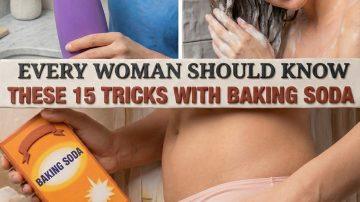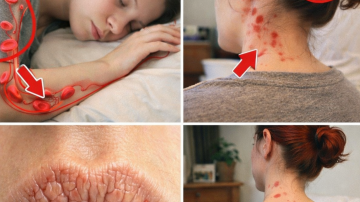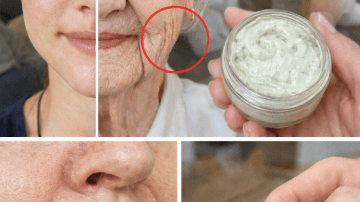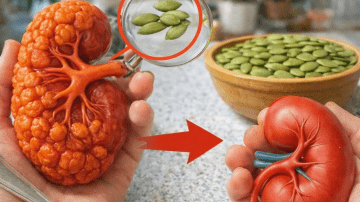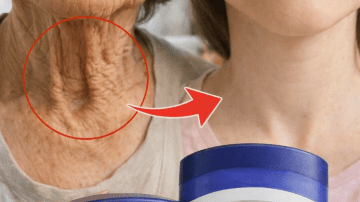Imagine the allure: A simple, affordable, homemade paste using Lemon Juice and Baking Soda that promises to erase years of stains and reveal a dazzling, radiant smile in minutes. This hack is wildly popular online, promoted as the ultimate natural alternative to harsh chemical whiteners.
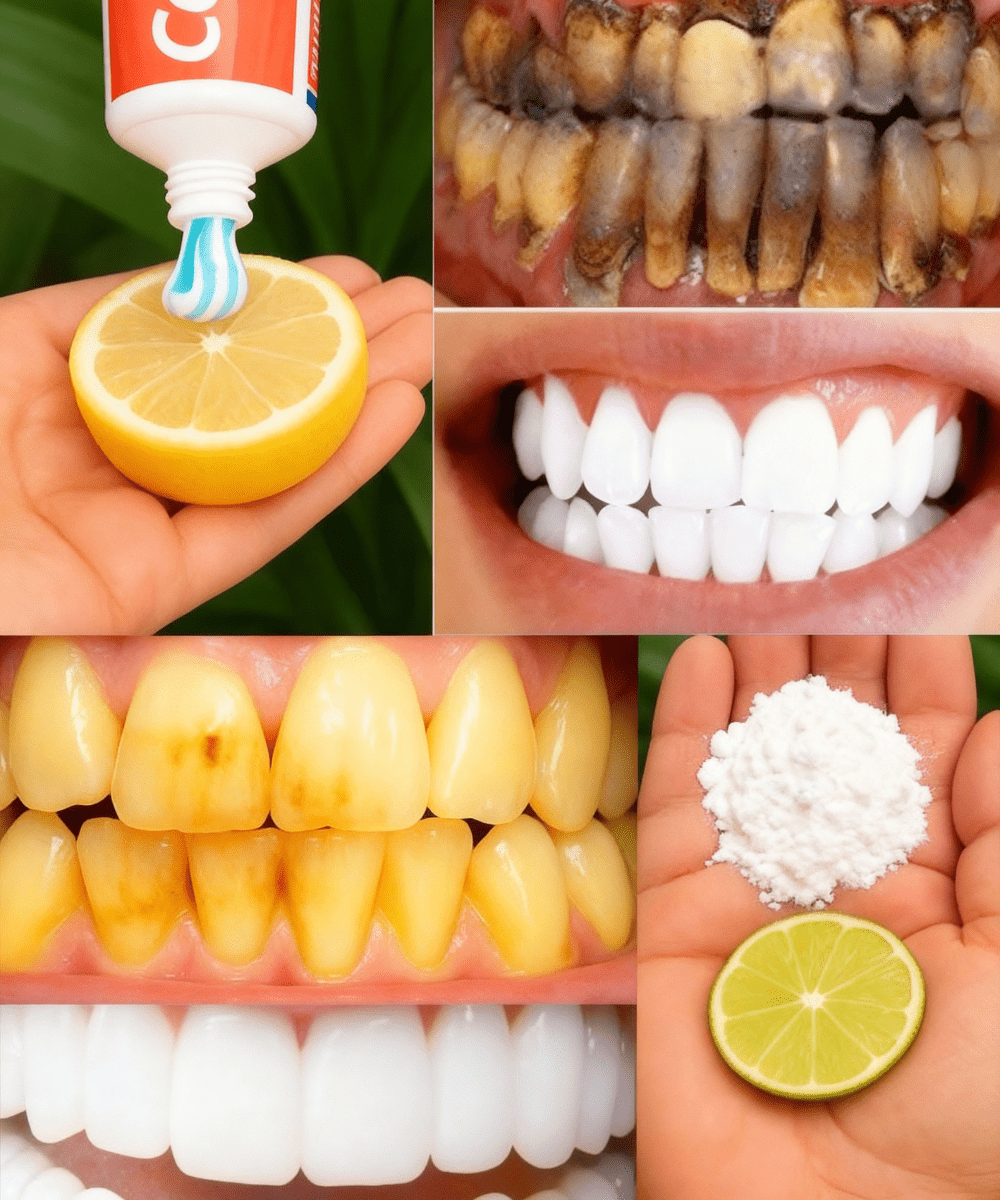
However, dermatologists and dentists issue a CRITICAL, non-negotiable warning about this specific mixture. While accessible and cheap, combining these two powerful ingredients—a potent acid and an abrasive alkali—creates a chemical and abrasive hazard that poses a direct threat to your most valuable asset: your tooth enamel.
You must move beyond the affordability. Read on to uncover the definitive reasons why this hack is unsafe, the permanent damage it causes, and the safe, established methods you must use to achieve genuinely brighter teeth without compromising your dental health.
🧪 The Scientific Breakdown: Why Lemon and Baking Soda Are Corrosive
The practice of using this DIY paste is flawed because it attacks the tooth structure through two different, synergistic mechanisms: acid erosion and physical abrasion.
1. 🍋 The Acid Attack (Chemical Erosion Risk)
- The Problem: Lemon (or lime) juice is extremely acidic (pH 2.0–2.6). Tooth enamel is a hard, mineralized structure that is sensitive to low pH.
- The Danger: When this raw, concentrated acid comes into direct contact with your teeth, it begins the process of enamel erosion, softening and demineralizing the tooth surface. This chemical weakening is irreversible.
2. ✨ The Abrasive Risk (Physical Damage)
- The Problem: Baking soda (Sodium Bicarbonate) is a common kitchen cleaning agent because it is mildly alkaline and highly abrasive in its raw powder form.
- The Danger: Scrubbing your teeth with baking soda—especially when the enamel has been softened by the lemon acid—is like using sandpaper on weakened mineral. This aggressively wears down the enamel.
3. 💔 The Permanent Damage:
- Enamel Loss: Continuous use thins the enamel, which cannot regenerate. This leads to tooth sensitivity and, ironically, eventual permanent yellowing, as the dentin layer beneath the thin enamel is exposed.
- Lack of Fluoride: This DIY paste lacks fluoride, the single most proven agent for remineralizing and strengthening enamel against decay.
🛑 NON-NEGOTIABLE DENTAL WARNING: Never brush your teeth with a paste containing raw lemon juice or a high concentration of baking soda. The combined acid and abrasion causes permanent damage.
👑 The Safe Path: Achieving Radiance without Risk
The true secret to a brighter smile is consistency, remineralization, and controlled oxidation—methods that work with your tooth structure, not against it.
1. 🦷 Use Dentist-Approved Whitening Agents
- The Mechanism: The only substances proven to safely change the color of the dentin (the inner layer of the tooth) are peroxides (hydrogen peroxide or carbamide peroxide), used in gels or strips.
- The Fix: Consult your dentist for professional whitening treatments or use dentist-approved whitening kits.
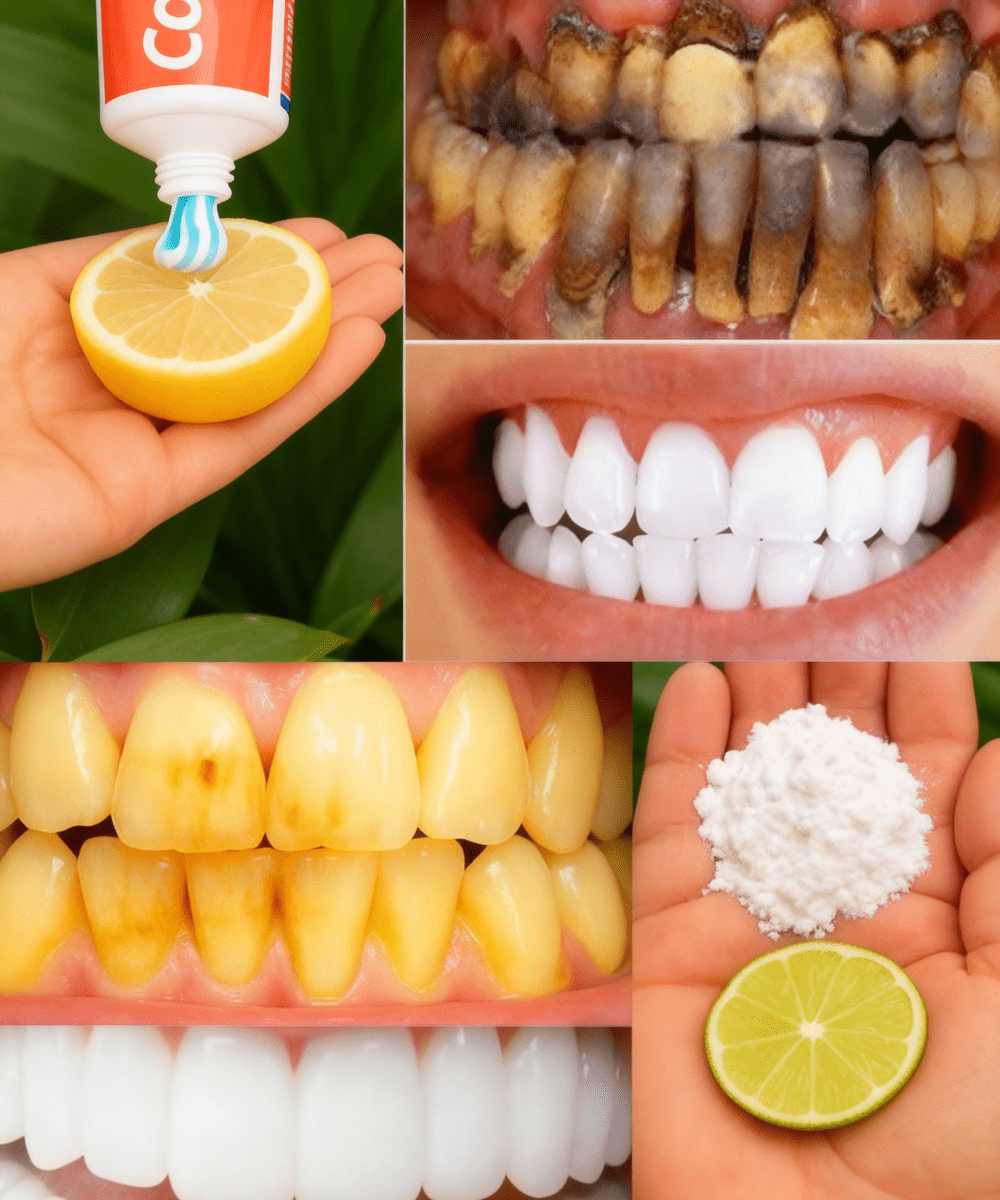
2. 🪥 Master Gentle, Fluoride-Based Oral Care
- The Mechanism: Fluoride attracts minerals to the enamel, accelerating the body’s natural remineralization process.
- The Fix: Brush twice daily with a soft-bristled brush and a fluoride toothpaste. Brush gently in small, circular motions. Floss daily to remove plaque that causes gingivitis and decay.
3. ☕ Limit Staining Foods and Acid Exposure
- The Mechanism: Dark liquids (coffee, red wine, black tea) and highly acidic foods temporarily stain and soften enamel.
- The Fix: Avoid sipping acidic or staining drinks throughout the day. Drink them quickly, and rinse your mouth immediately with plain water afterward to neutralize the acid.
4. 🥥 Use Oil Pulling (Plaque Management)
- The Mechanism: Swishing coconut oil (rich in lauric acid) helps bind to and remove plaque-causing bacteria.
- The Fix: Swish 1 tablespoon of coconut oil for 10 minutes daily. While it does not whiten, it significantly helps reduce plaque and support gum health.
🛑 FINAL WORD: Protect Your Enamel
The search for a quick, cheap fix is tempting, but the longevity of your smile depends on the health of your enamel. Do not risk permanent damage with corrosive, abrasive home hacks.
Your smile is your greatest asset. Protect it with professional care and safe, science-backed habits.

